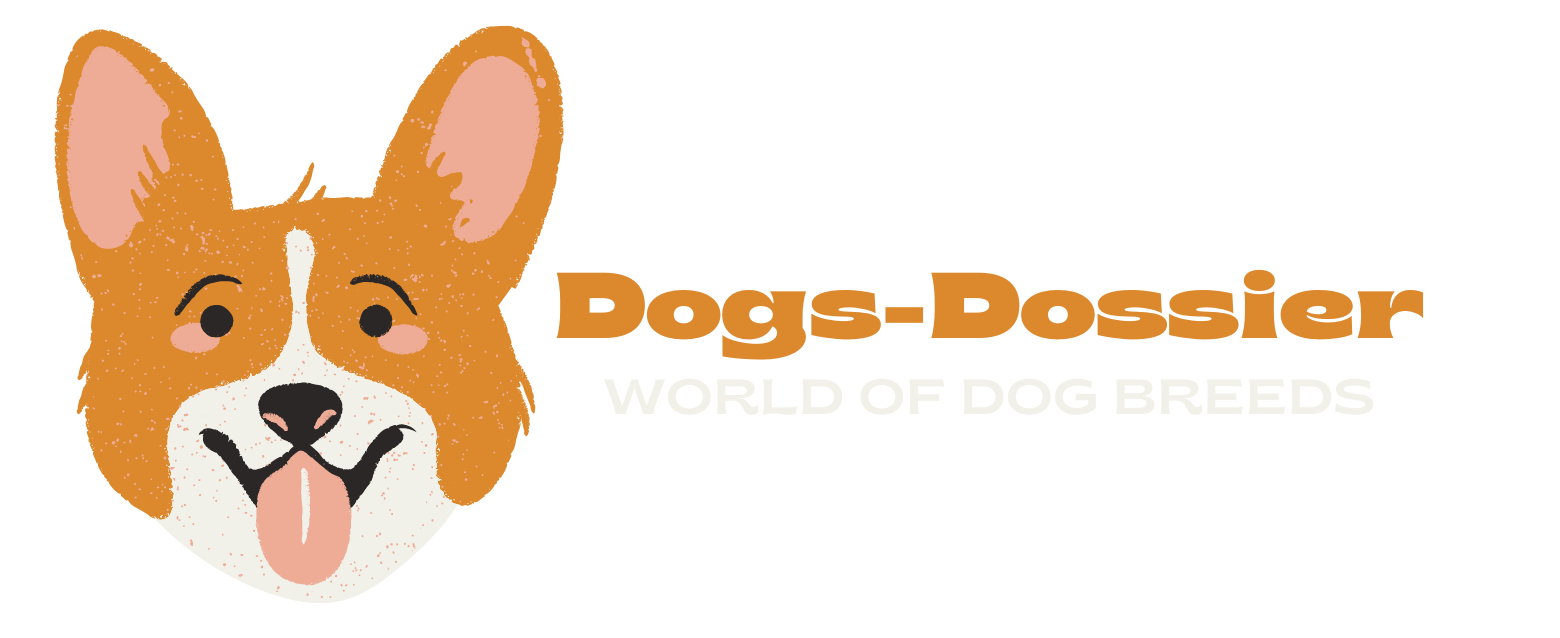Newborn Golden Retriever Puppy: with a Building Bonds
Bringing home a newborn golden retriever puppy is an exciting and rewarding experience.
These fluffy bundles of joy quickly become cherished members of the family, but building a strong bond with your new puppy requires time, effort, and understanding.
In this comprehensive guide, we’ll explore the essential steps to fostering a deep and lasting connection with your golden retriever puppy.
Preparing for Your Newborn Golden Retriever Puppy
Before bringing your newborn golden retriever puppy home, it’s crucial to prepare your environment to ensure a smooth transition.
Create a cozy and safe space for your puppy to sleep and play, complete with bedding, toys, and puppy-proofing measures.
Stock up on essential supplies such as high-quality puppy food, bowls, a collar and leash, grooming tools, and a crate for training and containment.

The Arrival of Your Golden Retriever Puppy
When your newborn golden retriever puppy arrives home, make them feel welcome and secure in their new environment.
Spend plenty of time bonding with your puppy, offering gentle cuddles and reassurance.
Allow your puppy to explore their surroundings at their own pace, providing guidance and supervision as needed.
Begin establishing routines for feeding, potty training, and playtime to help your puppy settle in comfortably.
Understanding Golden Retriever Temperament and Personality
Golden retrievers are not just dogs; they are enchanting bundles of personality that captivate the hearts of all who encounter them.
Understanding the intricacies of their temperament and personality is akin to delving into a treasure trove of affection, loyalty, and companionship.
Golden Retriever Temperament
At the core of every golden retriever lies a gentle soul, brimming with warmth and amiability.
Their temperament is characterized by an innate friendliness and sociability that knows no bounds.
Whether greeting familiar faces or welcoming strangers with open paws, golden retrievers exude an unmistakable charm that leaves a lasting impression.
Personality Traits
Peeling back the layers of a golden retriever’s personality reveals a tapestry of endearing qualities.
Their boundless enthusiasm for life is infectious, infusing every moment with joy and vitality.
Coupled with keen intelligence and unwavering loyalty, golden retrievers possess an innate ability to forge deep and meaningful connections with their human companions.
Affectionate Companions
At the heart of it all, golden retrievers are devoted companions who thrive on companionship and affection.
Their unwavering loyalty knows no bounds, and they are quick to shower their loved ones with unconditional love and affection.
Whether curling up at your feet or eagerly awaiting your return, golden retrievers epitomize the true meaning of companionship.
Navigating the Golden Journey
Embarking on the journey with a golden retriever is a transformative experience filled with laughter, love, and endless adventures.
As you unravel the complexities of their temperament and personality, you’ll discover a loyal friend and steadfast companion who enriches your life in ways you never thought possible.
Nurturing Your Newborn Golden Retriever Puppy
Welcoming a newborn golden retriever puppy into your home marks the beginning of a rewarding journey filled with love, laughter, and companionship.
Caring for your new furry friend requires patience, dedication, and a deep understanding of their unique needs.
Feeding and Nutrition
Proper nutrition is the cornerstone of your golden retriever puppy’s health and development.
Choose a high-quality puppy food formulated to meet their specific dietary requirements, and feed them according to the manufacturer’s recommendations.
Monitor their weight and adjust their feeding schedule as needed to ensure they maintain a healthy body condition.
Exercise and Activity
Golden retriever puppies are bundles of energy, and regular exercise is vital for their physical and mental well-being.
Provide opportunities for play and physical activity throughout the day, including walks, games of fetch, and interactive toys.
Be mindful not to overexert your puppy, as their growing bodies require rest and recovery.
Socialization and Training
Early socialization is crucial for shaping your golden retriever puppy’s behavior and temperament.
Introduce them to a variety of people, animals, and environments in a positive and controlled manner to help them develop confidence and social skills.
Begin basic obedience training as soon as possible, using positive reinforcement techniques to teach commands and encourage good behavior.
Grooming and Hygiene
Regular grooming is essential for keeping your golden retriever puppy looking and feeling their best.
Brush their coat several times a week to remove loose fur and prevent mats and tangles. Bathe them as needed using a mild dog shampoo, trim their nails, and clean their ears regularly to prevent infection.
Pay attention to dental hygiene by brushing their teeth regularly and providing dental chews or toys.
Healthcare and Veterinary Care
Schedule regular veterinary check-ups for your golden retriever puppy to monitor their health and address any potential concerns.
Keep up to date with vaccinations, deworming, and parasite prevention treatments to protect them from common illnesses and parasites.
Be proactive in seeking medical attention if your puppy displays any signs of illness or discomfort.
Creating a Loving Environment
Above all, create a loving and nurturing environment for your golden retriever puppy to thrive. Provide plenty of affection, attention, and positive reinforcement to strengthen your bond and build trust.
Set clear boundaries and expectations, and be consistent in your training and discipline.
With patience, love, and guidance, your golden retriever puppy will grow into a happy and well-adjusted adult dog.

What Makes Golden Retrievers Well-Suited for Families?
Golden retrievers possess a unique blend of traits that make them ideal family dogs.
Their gentle disposition, coupled with intelligence and patience, allows them to thrive in dynamic family environments.
They are known for their affectionate nature and are particularly tolerant of children, making them excellent playmates and companions for kids of all ages.
Training Your Newborn Golden Retriever Puppy
Training your newborn golden retriever puppy is an essential part of nurturing a well-behaved and well-adjusted companion.
With patience, consistency, and positive reinforcement, you can lay the groundwork for a lifelong bond built on trust and mutual respect.
Starting Early
Begin training your golden retriever puppy as soon as you bring them home. Early socialization and obedience training are critical for shaping their behavior and temperament.
Start with basic commands such as sit, stay, come, and down, using positive reinforcement techniques like treats, praise, and play to encourage desired behaviors.
Consistency is Key
Consistency is crucial when training your newborn golden retriever puppy. Establish clear rules and expectations from the beginning, and enforce them consistently.
Use the same commands and gestures each time you ask your puppy to perform a behavior, and reward them promptly for obeying.
Consistent training builds trust and reinforces your puppy’s understanding of what is expected of them.
Positive Reinforcement
Positive reinforcement is the most effective way to train your golden retriever puppy. Reward good behavior with treats, praise, and affection to encourage them to repeat it in the future.
Avoid punishment or harsh corrections, as this can damage your puppy’s trust and confidence. Instead, focus on reinforcing positive behaviors and redirecting unwanted behaviors with gentle guidance.
Patience and Persistence
Training a golden retriever puppy takes time, patience, and persistence. Be patient with your puppy as they learn new commands and behaviors, and don’t expect perfection overnight.
Break training sessions into short, frequent sessions to keep your puppy engaged and prevent them from becoming overwhelmed.
Celebrate small victories and progress, and be prepared to adjust your approach as needed to meet your puppy’s individual needs.
Socialization and Exposure
Socialization is an essential aspect of training your newborn golden retriever puppy. Expose them to a variety of people, animals, sounds, and environments from a young age to help them develop confidence and adaptability.
Use controlled, positive experiences to introduce your puppy to new stimuli and build their social skills. Early socialization lays the foundation for a well-rounded and well-adjusted adult dog.
Professional Guidance
If you’re unsure about how to train your newborn golden retriever puppy or if you encounter behavioral challenges, don’t hesitate to seek professional guidance.
Enroll in puppy training classes or work with a certified dog trainer who specializes in positive reinforcement methods.
Professional guidance can provide valuable support and expertise to help you and your puppy succeed.
Bonding Activities for You and Your Newborn Golden Retriever Puppy
Building a strong bond with your golden retriever puppy is a journey filled with joy, laughter, and unforgettable moments.
Engaging in bonding activities not only strengthens your relationship but also nurtures a deep sense of trust and companionship.
Playtime Adventures
Nothing strengthens the bond between you and your newborn golden retriever puppy like playtime adventures.
Whether it’s a game of fetch in the backyard, a hike through the woods, or a stroll in the park, engaging in outdoor activities together allows you to connect on a physical and emotional level.
Encourage your puppy to explore their surroundings, chase after toys, and revel in the simple joys of being together outdoors.
Training Sessions
Training sessions offer valuable opportunities to bond with your newborn golden retriever puppy while teaching them important skills and behaviors.
Use positive reinforcement techniques such as treats, praise, and play to make training sessions fun and engaging for your puppy.
Focus on building trust, communication, and mutual understanding as you work together to master new commands and tricks.
Cuddle Time
Golden retriever puppies are renowned for their affectionate nature, and nothing beats the warmth of a cuddle session with your furry companion.
Set aside time each day to snuggle up with your puppy, offering gentle pets, belly rubs, and words of encouragement.
Cuddle time not only strengthens your bond but also provides comfort and reassurance for both you and your puppy.
Interactive Toys and Games
Interactive toys and games are excellent tools for bonding with your golden retriever puppy while stimulating their mind and body.
Invest in a variety of toys designed to engage your puppy’s senses and encourage active play.
Whether it’s a puzzle toy that dispenses treats or a tug-of-war rope for a friendly game of tug, interactive toys provide hours of entertainment and bonding opportunities for you and your puppy.
Addressing Challenges
While the journey of raising a newborn golden retriever puppy is incredibly rewarding, it also comes with its fair share of challenges.
From behavioral issues to health concerns, addressing these challenges head-on is essential for ensuring the well-being and happiness of both you and your furry companion.

Behavioral Challenges
- Potty Training: Many golden retriever puppies struggle with potty training, leading to accidents indoors. Establish a consistent routine, take your puppy outside frequently, and reward them for eliminating outdoors. Clean up accidents promptly and avoid punishment, as it can lead to anxiety and confusion.
- Chewing and Biting: Golden retriever puppies have a natural inclination to chew and nip, which can be destructive and painful. Provide plenty of appropriate chew toys, redirect their chewing behavior, and discourage biting through gentle correction and positive reinforcement.
- Separation Anxiety: Some golden retriever puppies experience separation anxiety when left alone, leading to excessive barking, whining, and destructive behavior. Gradually acclimate your puppy to being alone, practice short absences, and provide comfort items such as a favorite toy or blanket.
Health Challenges
- Parasites and Fleas: Golden retriever puppies are susceptible to parasites such as fleas, ticks, and intestinal worms. Keep your puppy on a regular parasite prevention regimen prescribed by your veterinarian, and regularly check their fur and skin for signs of infestation.
- Vaccinations and Preventive Care: Ensure your golden retriever puppy receives all necessary vaccinations and preventive care to protect against common diseases and health conditions. Follow your veterinarian’s recommendations for vaccination schedules, deworming, and flea and tick prevention.
- Nutrition and Weight Management: Golden retriever puppies require a balanced diet to support their growth and development. Feed your puppy high-quality puppy food appropriate for their age and size, and monitor their weight to prevent obesity, which can lead to health issues later in life.
Training Challenges
- Stubbornness and Distraction: Golden retrievers are intelligent but can be stubborn and easily distracted during training sessions. Keep training sessions short and engaging, use high-value treats as rewards, and minimize distractions to help your puppy stay focused and motivated.
- Reactivity and Aggression: Some golden retriever puppies may exhibit reactive or aggressive behavior towards other dogs or people. Address these issues with positive reinforcement training, desensitization techniques, and professional guidance from a certified dog trainer or behaviorist.
Health and Wellness
The health and wellness of your golden retriever puppy are paramount to their happiness and longevity.
As a responsible pet owner, it’s essential to prioritize their physical and mental well-being through proper nutrition, regular exercise, preventive care, and attentive monitoring.
Nutrition
A balanced diet is the foundation of your golden retriever puppy’s health and vitality.
Choose a high-quality puppy food formulated to meet their nutritional needs, including essential vitamins, minerals, protein, and fats.
Feed your puppy according to their age, weight, and activity level, and avoid overfeeding to prevent obesity and related health issues.
Exercise
Golden retriever puppies are energetic and require regular exercise to stay physically and mentally stimulated.
Engage your puppy in daily activities such as walks, play sessions, and interactive games to promote cardiovascular health, muscle development, and mental enrichment.
Monitor their exercise intensity and duration to avoid overexertion, especially during hot weather or strenuous activities.
Preventive Care
Regular veterinary check-ups are essential for monitoring your golden retriever puppy’s health and detecting any potential issues early.
Schedule wellness exams, vaccinations, deworming, and parasite prevention treatments as recommended by your veterinarian.
Discuss your puppy’s lifestyle, dietary needs, and any concerns you may have to tailor their preventive care plan accordingly.
Dental Health
Good dental hygiene is crucial for your golden retriever puppy’s overall health and well-being.
Brush their teeth regularly with a dog-specific toothbrush and toothpaste to prevent plaque and tartar buildup, gum disease, and dental issues.
Offer dental chews, toys, and treats designed to promote oral health and prevent bad breath.
Mental Stimulation
Mental stimulation is just as important as physical exercise for your golden retriever puppy’s well-being.
Provide enrichment activities such as puzzle toys, scent games, and obedience training to engage their mind and prevent boredom.
Rotate toys regularly to keep your puppy mentally engaged and stimulated.
Monitoring and Observation
Pay close attention to your golden retriever puppy’s behavior, appetite, energy levels, and bathroom habits to monitor their health and well-being.
Keep track of any changes or abnormalities and promptly consult your veterinarian if you notice any signs of illness or discomfort.
Trust your instincts and advocate for your puppy’s health and welfare at all times.

Long-Term Bonding and Relationship Building
The bond between you and your golden retriever is a precious and enduring relationship that deepens over time.
As your puppy grows into an adult dog, nurturing and strengthening this bond requires ongoing effort, patience, and dedication.
Consistent Companionship
Consistency is key to maintaining a strong bond with your golden retriever throughout their life.
Make time for regular companionship and quality interactions, whether it’s going for daily walks, cuddling on the couch, or engaging in playtime together.
Your presence and attention are invaluable to your dog and reinforce the bond between you.
Shared Experiences
Creating shared experiences and memories with your golden retriever strengthens your connection and deepens your bond.
Explore new places, embark on adventures, and participate in activities that you both enjoy, whether it’s hiking in nature, visiting the beach, or attending dog-friendly events.
These shared experiences build trust and camaraderie between you and your dog.
Training and Learning Together
Continuing to engage in training and learning activities with your golden retriever reinforces your bond and enhances communication between you.
Keep training sessions fun, interactive, and rewarding, using positive reinforcement techniques to encourage good behavior and build trust.
As you learn and grow together, you strengthen the foundation of your relationship.
Unconditional Love and Acceptance
The unconditional love and acceptance that golden retrievers offer are the cornerstones of their relationship with their human companions.
Embrace your dog’s unique personality, quirks, and traits, and celebrate the bond of unconditional love that binds you together.
Your acceptance and understanding deepen the connection between you and your golden retriever.
Empathy and Understanding
Developing empathy and understanding for your golden retriever’s needs, emotions, and communication signals fosters a deeper bond and strengthens your relationship.
Pay attention to your dog’s body language, vocalizations, and behavior, and respond with compassion and empathy to their needs and feelings.
Your sensitivity and responsiveness deepen the bond of trust between you.
Adapting to Life Changes
Life is full of changes, and adapting to these changes together strengthens the bond between you and your golden retriever.
Whether it’s moving to a new home, welcoming a new family member, or facing health challenges, navigate life’s transitions with your dog by your side.
Your resilience and support reinforce the bond of loyalty and companionship that defines your relationship.
FAQs: Newborn Golden Retriever Puppy
How often should I bathe my golden retriever puppy?
It’s best to bathe your golden retriever puppy every 4-6 weeks or as needed, using a mild dog shampoo and lukewarm water.
What is the best way to socialize my puppy with other dogs?
Introduce your puppy to other dogs gradually in controlled environments, such as puppy classes or supervised playdates, to ensure positive experiences and interactions.
How can I prevent separation anxiety in my golden retriever puppy?
Start by gradually acclimating your puppy to being alone for short periods, and provide plenty of mental and physical stimulation when you’re away. Consider crate training and using calming aids if necessary.
At what age should I start training my golden retriever puppy?
You can start training your golden retriever puppy as early as 8 weeks old, focusing on basic commands and positive reinforcement techniques.
How do I know if my puppy is healthy?
Monitor your puppy for signs of good health, including bright eyes, a shiny coat, a healthy appetite, and regular bowel movements. Schedule regular check-ups with your veterinarian to ensure your puppy’s well-being.
Conclusion
Building a strong and lasting bond with your newborn golden retriever puppy is a journey filled with love, joy, and companionship.
By providing nurturing care, positive reinforcement, and plenty of quality time together, you can forge a deep and meaningful connection that will endure for years to come.
Embrace the journey of puppyhood with patience, understanding, and devotion, and enjoy the countless rewards of sharing your life with a golden retriever.





